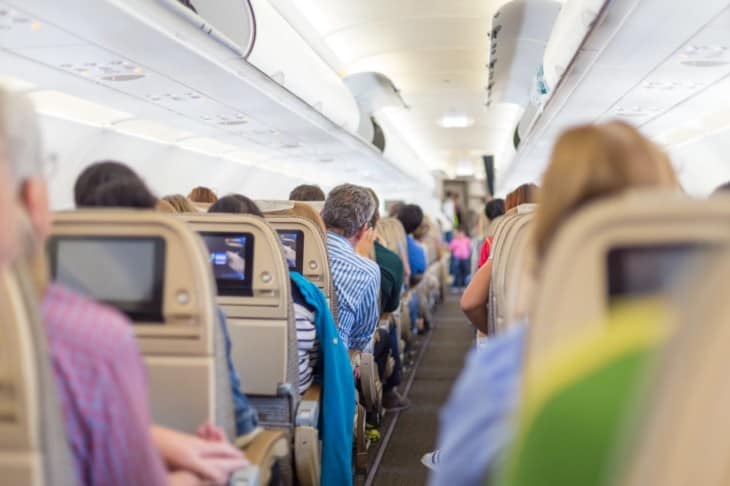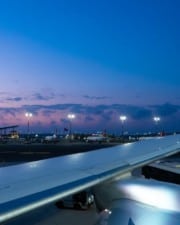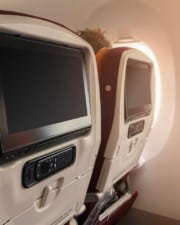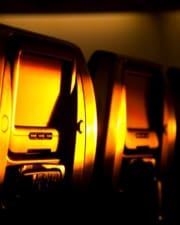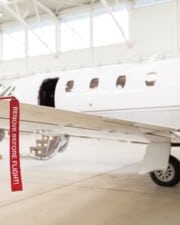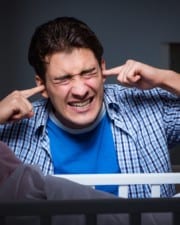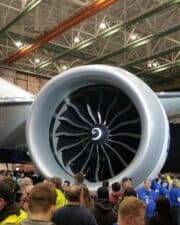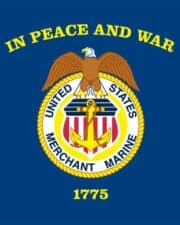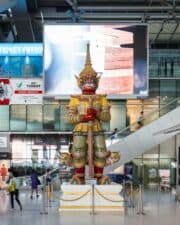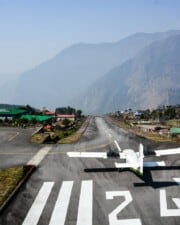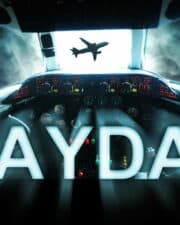Clapping after the plane lands has been a divisive issue from the start. Some people think that clapping after an aircraft lands is perfectly fine, whereas others consider and rude, annoying, and tacky. But what’s the history behind clapping when an airplane lands? And, can pilots hear passengers clap in the cabin?
People clap when a plane lands for different reasons. It can be out of a sense of relief that we’re all safe and sound on the ground again. Depending on the situation, such as rough weather, it can be to praise the pilot for a job well done. Or perhaps it is part of a cultural phenomenon where people are naturally more expressive regarding their emotions.
History Of Clapping Onboard Planes
Looking back through the archives, there is no clear reason as to when, where, and why the act of clapping after a plane lands started. Some possibilities could be to celebrate the return home after a long voyage, or an exceptionally skillful and smooth landing by the pilots, or by fearful, nervous flyers who are happy that the flight has come to an end.
Indeed, there was no clapping when, in 1908, Orville and Wilbur Wright took flight for the first time in the history of mankind. However, the first recorded example of people clapping after a plane landed was in 1948, when an American Airlines suffered from a landing gear malfunction, and the pilots skillfully and safely managed to land their stricken aircraft at Cincinnati airport.
Why Do People Clap On Landing?
There are several reasons why people clap on landing. Some of them are as follows:
1. Fear Of Flying
By nature, humans have not been built or designed to fly, therefore it is understandable that humans would fear something that is out of their comfort zone. This fear is evident, particularly among new or nervous fliers, especially during landing.
Landing can be a tense moment for even the most seasoned of travelers. The sensation of hanging in the air mere feet above the ground while traveling well over 200 kilometers per hour can be a very tense and demanding combination.
Only when the wheels have touched down and the aircraft has slowed down considerably, do nervous or first-time fliers relax their muscles, and they might start clapping, relieved that they are back on hard solid ground.
2. Praise
Applause is often associated with praise or congratulating someone on a job well done. If the crew has performed a really smooth landing under really tricky conditions, the passengers may clap to show their praise or admiration for the pilot’s skillful handling of the airplane.
This can be illustrated by the example of Air France Flight 358 which overran the runway during landing in heavy rain and poor visibility at Toronto Pearson International Airport in 2005. Eyewitnesses told the investigators that the weather conditions were terrible during approach with gusty winds buffeting the aircraft and torrential rain.
As the airplane landed, people started clapping to show their admiration for the pilot’s skills, however soon after the clapping started the plane started to shake violently, and the cabin was plunged into darkness as the aircraft overran the runway and fell into a ravine.
Another example can be that of Southwest Airlines Flight 812. In April 2011, a hole tore through the roof of a 737 operated by Southwest Airlines rupturing the control cables. Despite having lost their main controls, the crew successfully executed an emergency landing after which the passengers clapped.
3. Cultural Phenomena
Globally, cultures and frequency of clapping vary from country to country. For example, it is well known that people from Latin America tend to be more expressive as compared to their Asian counterparts.
Also, clapping after the plane lands is a more common occurrence on some airlines than others. For example, most people would clap after the plane lands in Israel onboard Israeli Airlines El Al. Similarly, German, Italian, Russian, Portuguese, and Polish nationalities tend to clap more, particularly when landing at home airports as compared to Scandinavian or Norwegian nationalities.
Can Pilots Hear The Passenger’s Clapping?
There are several factors that determine if the pilots can hear the passengers clapping in the cabin or not such as the distance between the passengers and pilots, the intensity of applause, the type of aircraft and its construction, and the type of sound insulating materials used in the cabin.
Outside noise like the sound of reverse thrust and the sound of air being deflected by the spoilers would also be a factor in determining whether the pilots can hear the passengers applaud or not. Also, if the pilots are wearing noise-canceling headsets, it is possible that the headsets muffle the sound of applause.
In short, it is likely that the pilots can hear the passengers clapping in the cabin under the right set of circumstances. However, if the external noise is too much then the pilots may not be able to hear the applause.
Do Pilots Like It When Passengers Clap?
Most pilots do like being appreciated by the passengers particularly after executing a challenging approach under adverse conditions. According to one such pilot, “hearing the passengers applaud put a smile on my face”.
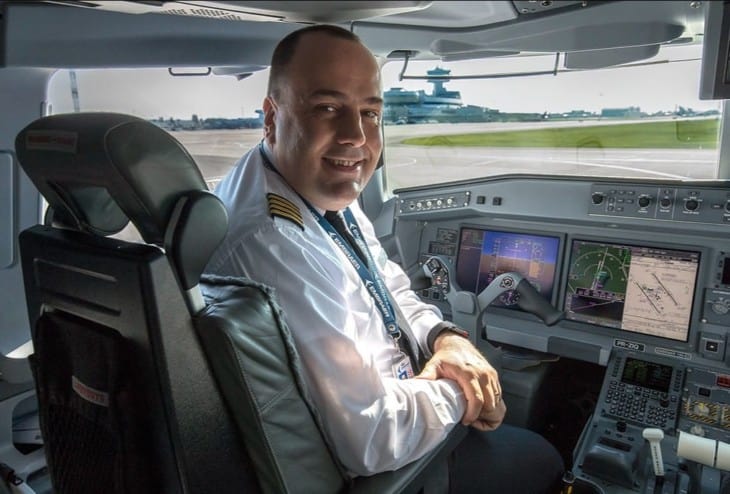
Should You Clap After Landing or Not?
Public opinion remains divisive on whether it is socially acceptable to clap after a plane lands or not. Some members of the traveling public view it as perfectly okay whereas others find it weird, rude, and tacky.
Two common factors affecting whether passengers will clap after landing or not are the route and socioeconomics. Clapping after landing would happen more often in the past when fewer people had access to air travel. Nowadays, air travel is easily accessible to everyone, and hence the chances of people clapping after landing have decreased.
The other factor is the route being flown. Passengers are more likely to clap after landing at their favorite holiday destination, landing at their home airport or after a particular turbulent flight. In both cases, the applause is mostly because of the happiness of arriving back home or arriving at one’s favorite holiday destination.
References ▾
Related Posts
